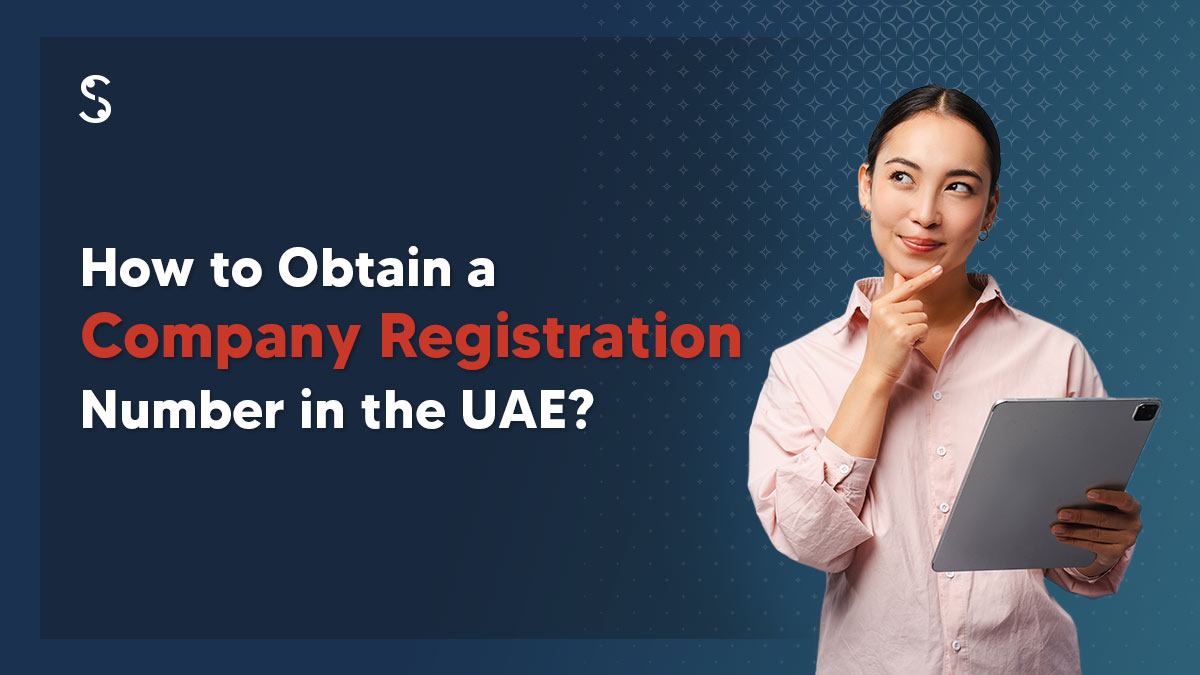Choosing the right business structure is essential for any entrepreneur, impacting everything from liability and taxation to daily operations and long-term growth. The two most common options, Sole Proprietorship vs. LLC, offer distinct advantages and challenges.
A sole proprietorship is the simplest and most affordable way to start a business, giving complete control to the owner and making them personally liable for debts and legal obligations. In contrast, an LLC provides liability protection, tax flexibility, and enhanced credibility, though it requires more paperwork and costs.
Understanding the key differences between these structures will help you make the best decision for your business's future. This guide will help you learn more about sole proprietorships and LLCs.
What is a Sole Proprietorship?
A sole proprietorship is a business structure where a single individual owns and operates the business. The owner is solely responsible for all profits, losses, and liabilities. This type of business is ideal for freelancers, consultants, and professionals such as doctors, lawyers, and accountants who want complete control over their operations.
Unlike corporations or partnerships, a sole proprietorship does not have a separate legal identity from the owner, meaning the owner is personally liable for debts and obligations.
Benefits of a Sole Proprietorship
Starting a business on your own? A sole proprietorship offers simplicity, complete control, and easy setup—making it a top choice for solo entrepreneurs. Below are some more benefits of sole proprietorship.
Full Control
The owner has complete authority over business decisions without approval from partners or shareholders, which allows for quick decision-making and efficient business operations.
Easy Setup
The registration process for a sole proprietorship is more straightforward and quicker than that of other business structures. Entrepreneurs can get started with minimal bureaucratic hurdles.
Low Setup Costs
Since there are no complex structures or multiple stakeholders, setup and operational costs are relatively low. This makes it a cost-effective choice for individuals starting a small business.
Limited Corporate Tax
There is limited corporate tax for sole proprietorships in the UAE. This allows business owners to retain a more significant portion of their earnings.
Less Compliance
Fewer regulations and reporting requirements make managing it easier, reducing administrative burdens and associated costs.
Greater Flexibility
The business owner has the flexibility to change or expand the nature of the business without extensive legal procedures.
Sole Proprietorship Business Registration Process
Below are the sole proprietorship business registration processes in the UAE:
Step 1: Choose a Business Activity
Determine the nature of the business and ensure it aligns with the approved activities listed by the Department of Economic Development (DED). Business activities range from consultancy to professional services like accounting, healthcare, or IT solutions.
Step 2: Select a Trade Name
Choose a unique trade name that complies with UAE regulations, ensuring it is not offensive, misleading, or previously registered.
Step 3: Apply for Initial Approval
Submit an application to the DED for initial approval of the business activity and trade name. This step ensures that the proposed business complies with local laws.
Step 4: Obtain External Approvals
Depending on the business type, additional approvals may be required from relevant authorities such as the Dubai Health Authority (DHA) for medical professionals or the Real Estate Regulatory Agency (RERA) for actual estate-related activities.
Step 5: Lease Office Space
Secure a commercial office space and obtain a tenancy contract (Ejari). A physical office is often required for licensing and regulatory purposes.
Step 6: Submit Documents & Pay Fees
The DED requires that you provide the required documents, including identity proofs and business-related documents, and pay the necessary fees.
Step 7: Receive the Business License
Once all requirements are met, the DED will issue the sole proprietorship license, allowing the business to operate legally in the UAE.
Documents Required to Get a Sole Proprietorship in the UAE
To register a sole proprietorship in the UAE, the following documents are typically required:- Copy of Passport and visa
- Emirates ID
- Business name reservation certificate
- Initial approval certificate from DED
- Tenancy contract (Ejari)
- No Objection Certificate (NOC)(if applicable)
- Professional qualification certificates
Sole Establishment License Cost in Dubai
Setting up a sole establishment in Dubai starts at approximately AED 18,500*. However, the exact cost may vary depending on business activity, location, and additional approvals required. Costs may also include:
- Trade name reservation fees
- Initial approval fees
- License issuance fees
- Office rent costs (if applicable)
- External authority approval fees (if required)
For a precise cost estimate and assistance with the process, you can connect with Shuraa Business Setup to streamline your business registration in Dubai. Their expert consultants can guide you through the process, ensuring compliance with UAE business laws and regulations.
What is an LLC?
A Limited Liability Company (LLC) is one of the most popular business structures in Dubai and the UAE. It is a flexible and legally recognised entity that provides limited liability protection to its owners while allowing them to conduct various commercial activities. In an LLC, the shareholders' liability is limited to their shares in the company, ensuring that their assets remain protected in case of financial liabilities.
In Dubai, an LLC must have between 2 and 50 shareholders, and expatriates in designated free zones can fully own it. However, if established on the mainland, you don’t need a local service agent to start your business. The LLC structure is ideal for entrepreneurs and foreign investors seeking to establish a foothold in the UAE market while enjoying regulatory advantages.
Benefits of an LLC in Dubai
Setting up a Limited Liability Company (LLC) in Dubai offers entrepreneurs a flexible business structure with full access to the local market and numerous growth opportunities.
Limited Liability Protection
Shareholders are only liable for the amount invested in the company, protecting personal assets from business debts and liabilities.
100% Ownership in Free Zones
Foreign investors can fully own an LLC in designated free zones, eliminating the need for a local sponsor.
Access to UAE Market
Unlike free zone companies limited to specific jurisdictions, mainland LLCs can operate freely across the UAE without restrictions.
No Minimum Capital Requirement
Dubai does not impose a minimum capital requirement for most LLCs, making it accessible to entrepreneurs and small businesses.
Flexibility in Business Activities
LLCs can engage in multiple business activities, including commercial, industrial, and trading activities, offering broad operational flexibility.
Ability to Conduct Government Contracts
Unlike free zone entities, LLCs registered on the mainland are eligible to apply for lucrative government contracts.
Easy Bank Account Setup
LLCs have a streamlined process for opening corporate bank accounts, with multiple banking options available in the UAE.
Tax Benefits
Dubai offers a tax-friendly environment, limited corporate and zero personal income tax, and attractive business incentives.
Business Credibility and Market Presence
An LLC structure enhances business credibility, making securing partnerships, attracting investors, and establishing a strong presence in the UAE market easier.
How to Set Up an LLC in Dubai, UAE
Setting up an LLC in Dubai involves several key steps. Below is a detailed step-by-step guide to forming an LLC:
Step 1: Choose a Business Activity
Decide on the type of business you want to establish. Ensure that it aligns with the activities permitted by Dubai’s Department of Economic Development (DED). Business activities can range from retail, manufacturing, and e-commerce to professional services.
Step 2: Select a Trade Name
Choose a unique and compliant trade name for your LLC. The name must adhere to UAE naming conventions and must not contain offensive or religiously sensitive words. An additional fee applies if the name is foreign or non-Arabic.
Step 3: Obtain Initial Approvals
Apply to the DED for initial approval of your business activity and trade name. This step ensures that your chosen business activity aligns with government regulations.
Step 4: Draft the Memorandum of Association (MOA)
The MOA outlines the roles, responsibilities, and capital investment of shareholders. It must be drafted per UAE legal requirements and notarised by a public notary.
Step 5: Choose a Business Location
Secure physical office space as per the DED’s regulations. A tenancy contract (Ejari) must be registered, as having a registered office is mandatory for LLCs.
Step 6: Obtain Necessary Licenses and Permits
Depending on the business activity, you may require additional approvals from relevant authorities, such as the Dubai Municipality, Dubai Chamber of Commerce, or industry-specific regulatory bodies.
Step 7: Submit Documents and Pay Fees
Complete the final submission to the DED, pay the necessary government fees, and obtain your business license. This step officially registers your LLC in Dubai.
Step 8: Register for VAT (if applicable)
If your business meets the VAT threshold (AED 375,000 in annual revenue), you must register for VAT with the Federal Tax Authority (FTA).
Step 9: Open a Corporate Bank Account
Once the LLC is registered, you can open a business bank account in Dubai. Choosing the right bank depends on your business needs, transaction volume, and international banking requirements.
Step 10: Apply for Visas
After obtaining the trade license, you can apply for visas for shareholders, employees, and dependents. The number of visas you can obtain depends on your office space and business activity.
Documents Required to Set Up an LLC in the UAE
To register an LLC in Dubai, the following documents are required:- Passport copies
- Emirates ID copy (if applicable)
- Visa copy (if applicable)
- No Objection Certificate (NOC)(if applicable)
- Trade name reservation certificate
- Initial approval certificate
- Memorandum of Association (MOA)
- Tenancy contract (Ejari)
- Additional approvals from relevant authorities (if required)
- Business plan
Cost of LLC Company Formation in Dubai
The cost to register an LLC (Limited Liability Company) starts from AED 18,500*. If you choose a foreign trade or non-Arabic name, an additional fee of AED 2,000* will apply. The cost to renew an LLC license in Dubai ranges between AED 8,000* and AED 15,000*, depending on the business type, office location, and other factors. Other expenses to consider include:
- Office Rent
- Visa Fees
- Government Fees
- Bank Account Setup
- Sponsorship Fees (if applicable)
For an accurate cost estimate customised to your business requirements, you can contact Shuraa Business Setup, a leading business setup consultancy in Dubai, for expert guidance and support.
Difference Between Sole Proprietorship Vs. LLC
When comparing a Sole Proprietorship Vs. LLC, the key differences lie in ownership, liability, taxation, and business structure. Here's a breakdown of their differences:
| Feature | Sole Proprietorship | Limited Liability Company (LLC) |
| Ownership | Owned by one individual | Can be owned by one or multiple members |
| Liability | Owner is liable for all debts and legal actions | Owners have limited liability protection, meaning personal assets are safeguarded |
| Formation | Simple and inexpensive to set up | Requires official registration and filing fees |
| Taxation | Business income is reported on the owner's tax return | It can be taxed as a sole proprietorship, partnership, or corporation, depending on the business structure. |
| Legal Status | Not a distinct legal entity; the owner and the business are legally identical. | A separate legal entity distinct from its owners |
| Business Continuity | Ends when the owner dies or stops operating | Can continue even if ownership changes |
| Credibility & Funding | May struggle with credibility and securing loans | More professional image and better access to funding sources |
| Compliance Requirements | Minimal paperwork and regulations | Must meet compliance requirements, such as annual filings and fees |
Which One Is Better?
The right choice depends on your business goals, risk tolerance, and financial plans.- Choose a Sole Proprietorship if you want a simple and low-cost business structure with complete control.
- Choose an LLC if you want liability protection, business growth potential, and tax flexibility.
Sole Proprietorship Vs. LLC: Which Business Structure Is Right for You?
In the debate of Sole Proprietorship Vs. LLC, the right choice depends on your business needs, risk tolerance, and growth aspirations. A sole proprietorship offers simplicity, complete control, and low costs, making it ideal for solo entrepreneurs. However, it comes with unlimited personal liability. On the other hand, an LLC provides liability protection, tax flexibility, and enhanced credibility, making it a better option for businesses seeking long-term stability and expansion.
Whether you prioritise ease of setup or financial security, understanding these differences will help you make an informed decision. For expert guidance, Shuraa Business Setup can assist in choosing the best structure for your business in the UAE.








